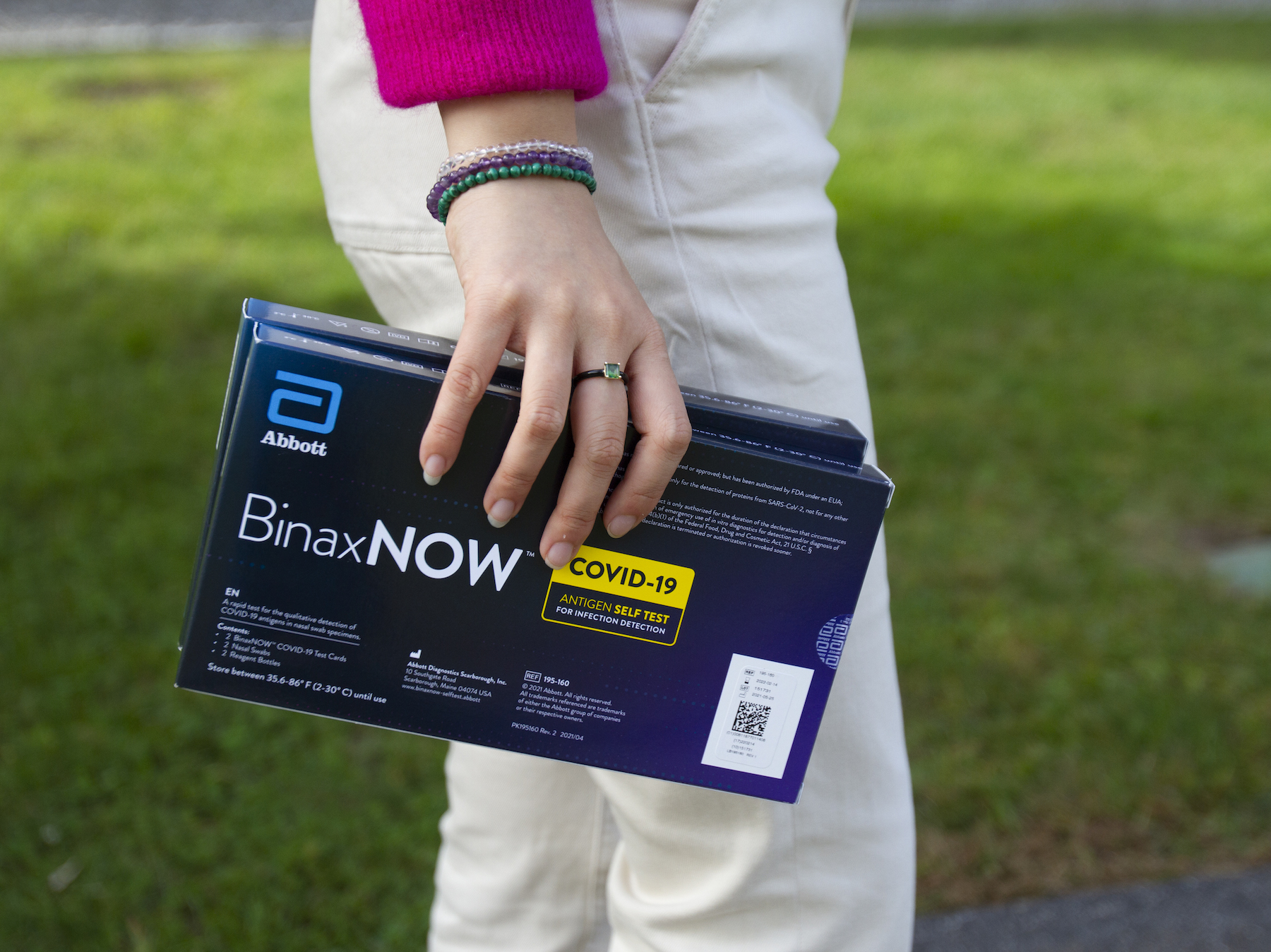Reliance on PCR tests increases despite expectations
September 24, 2021
 Amira Oguntoyinbo
Amira OguntoyinboDespite initial expectations that self-reporting and antigen testing would provide an effective surveillance system for this semester, the College has shifted to becoming more reliant on PCR testing as it was last year, when students were PCR tested two to three times each week.
This fall, with nearly everyone on campus fully vaccinated, administrators had initially hoped to achieve the same results as the PCR testing with a once-per-month PCR surveillance testing program supplemented by rapid antigen tests for close contacts or students reporting symptoms. However, the efficacy of rapid tests is not appearing to hold true.
“The beginning of the semester we were basing our clinical decision-making about testing on last semester’s experience,” Director of Health Services Dr. Jeffrey Maher said. “So our experience at the end of the spring semester is that an antigen test was an excellent way to know if a symptomatic student had a high enough viral presence to be infectious to other students, because the antigen test is based on viral protein.”
Additionally, Maher suggested that the flip side of the vaccine being so effective at preventing hospitalizations and deaths is that it keeps an infected person’s viral load low, making it even harder to detect a positive case via antigen test.
“Students would show up here with a runny nose, cough and headache and we would get an antigen test and it would be negative … then, we would learn a day or two later that their antigen test would turn positive or their PCR would be positive,” Maher said. “The Delta variant [is] harder to figure out using antigen testing only.”
At the beginning of the semester, the College promised to provide every student with two free BinaxNOW antigen self-tests per week. Those tests have also been used to monitor students identified as close contacts. In the past two weeks, the number of tests issued has dropped significantly.
“We issue tests for close contacts and for students who report symptoms, and the number of tests issued have decreased by about half over the last two weeks,” Associate Dean of Student Affairs Katie Toro-Ferrari wrote in an email to the Orient.
Testing strategies aside, the Delta variant is known to be more virulent and far more easily transmissible than other variants of the virus, which has already been a factor on campus this fall.
“All last year we did antigen testing and PCR testing on all of our close contacts … and none of those unvaccinated close contacts ended up converting to a positive case. Zero. In our experience in move-in week, we had 30 positive cases, and the majority of them were close contacts to a known case. And so it speaks to the Delta variant as a much more communicable virus,” Maher said. “Students were able to pass that virus from one person to another at a much higher rate with less contact than we saw in an unvaccinated population.”
Those thirty positive cases were what prompted the College to transition back to an aggressive PCR testing model, which has proven effective and allowed campus to move back to status Green.
“What saved us … was switching to everyone getting a PCR test twice a week,” Maher said. “That has given us a much better picture … [of] how many people on campus are really infectious and how many are not. At this point, I think we have slowed down on our antigen testing because we have reliable, twice-weekly PCR testing.’’
While the current testing model seems to be working, Maher kept the door open for possible changes throughout the remainder of the semester.
“I am very confident in what we have developed to date. I am also very confident that we’ll have to switch it as sports move indoors, as winter comes on and as we learn more about what’s in the community,” Maher said. “I think we will be switching [our testing strategy] again.”

Comments
Before submitting a comment, please review our comment policy. Some key points from the policy: